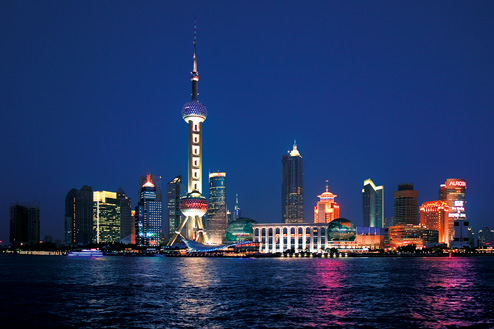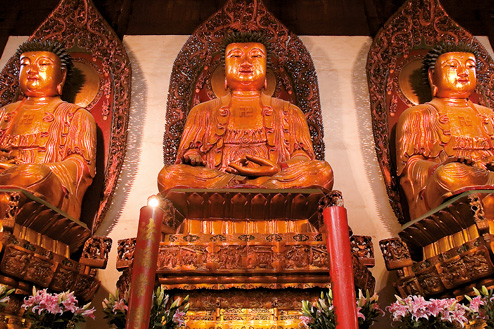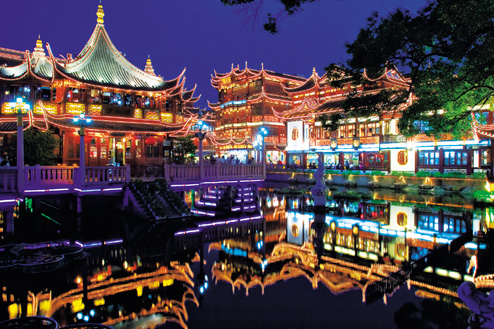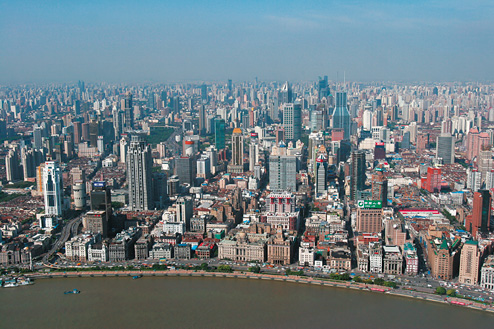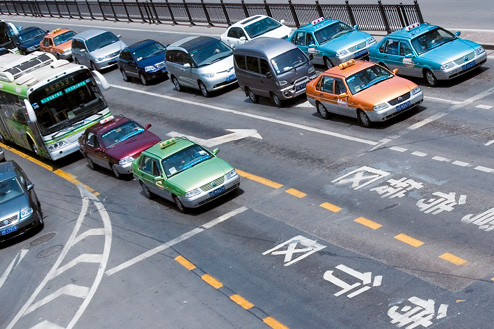Government & Politics
The People’s Republic of China has been run by the Communist Party of China since its foundation in 1949. The head of state is President Hu Jintao, who holds the three most powerful positions in China: general secretary of the Communist Party, chairman of the Central Military Commission and paramount leader of the country. Hu was re-elected president in 2008 by the 11th National People's Congress (NPC), which also elected Xi Jinping as vice president. Xi is the former Communist Party Chief of Shanghai and highly tipped to succeed Hu in 2012.
The NPC is the highest political body in China and is a single legislative chamber. It comprises nearly 3,000 deputies who are elected for five-year terms by local people’s congresses. Each has a vote for both aforementioned posts, the result being decided by simple majority. The NPC meets for two weeks each year to decide policy issues, laws and the budget. While not in session, power is wielded by the Standing Committee, which can have up to nine members, and is effectively China’s cabinet.
The military also plays a key role in government as one of the main hierarchies. The State Council is the main administrative body of the government, responsible for the day-to-day running of the country and implementing policy decisions. It is chaired by the prime minister, currently Wen Jiabao, who has up to four deputies. Below state level, there are 22 provinces (Anhui, Fujian, Gansu, Guangdong, Guizhou, Hainan, Hebei, Heilongjiang, Henan, Hubei, Hunan, Jiangsu, Jiangxi, Jilin, Liaoning, Qinghai, Shaanxi, Shandong, Shanxi, Sichuan, Yunnan and Zhejiang), plus Taiwan, which China sees as its 23rd province. There are also five autonomous regions (Guangxi, Inner Mongolia, Ningxia, Xinjiang and Tibet) and four municipalities (Beijing, Shanghai, Tianjin and Chongqing), all of which come under the jurisdiction of the State Council.
All ministries, bureaux, administrations and institutions, including news agencies, come under the State Council. The ministry of national defence comes under the State Council but the council does not control the military. Provinces have governors elected by local congresses. Municipalities are large cities with the same status as provinces. Autonomous regions are ethnic province-level areas which have an elected chairman instead of a governor. The special administrative regions of Hong Kong and Macau have a high level of autonomy under China’s ‘one country, two systems’ policy, brought in when they were transferred back to China from Britain and Portugal respectively in the 1990s.
The NPC is the highest political body in China and is a single legislative chamber. It comprises nearly 3,000 deputies who are elected for five-year terms by local people’s congresses. Each has a vote for both aforementioned posts, the result being decided by simple majority. The NPC meets for two weeks each year to decide policy issues, laws and the budget. While not in session, power is wielded by the Standing Committee, which can have up to nine members, and is effectively China’s cabinet.
The military also plays a key role in government as one of the main hierarchies. The State Council is the main administrative body of the government, responsible for the day-to-day running of the country and implementing policy decisions. It is chaired by the prime minister, currently Wen Jiabao, who has up to four deputies. Below state level, there are 22 provinces (Anhui, Fujian, Gansu, Guangdong, Guizhou, Hainan, Hebei, Heilongjiang, Henan, Hubei, Hunan, Jiangsu, Jiangxi, Jilin, Liaoning, Qinghai, Shaanxi, Shandong, Shanxi, Sichuan, Yunnan and Zhejiang), plus Taiwan, which China sees as its 23rd province. There are also five autonomous regions (Guangxi, Inner Mongolia, Ningxia, Xinjiang and Tibet) and four municipalities (Beijing, Shanghai, Tianjin and Chongqing), all of which come under the jurisdiction of the State Council.
All ministries, bureaux, administrations and institutions, including news agencies, come under the State Council. The ministry of national defence comes under the State Council but the council does not control the military. Provinces have governors elected by local congresses. Municipalities are large cities with the same status as provinces. Autonomous regions are ethnic province-level areas which have an elected chairman instead of a governor. The special administrative regions of Hong Kong and Macau have a high level of autonomy under China’s ‘one country, two systems’ policy, brought in when they were transferred back to China from Britain and Portugal respectively in the 1990s.

